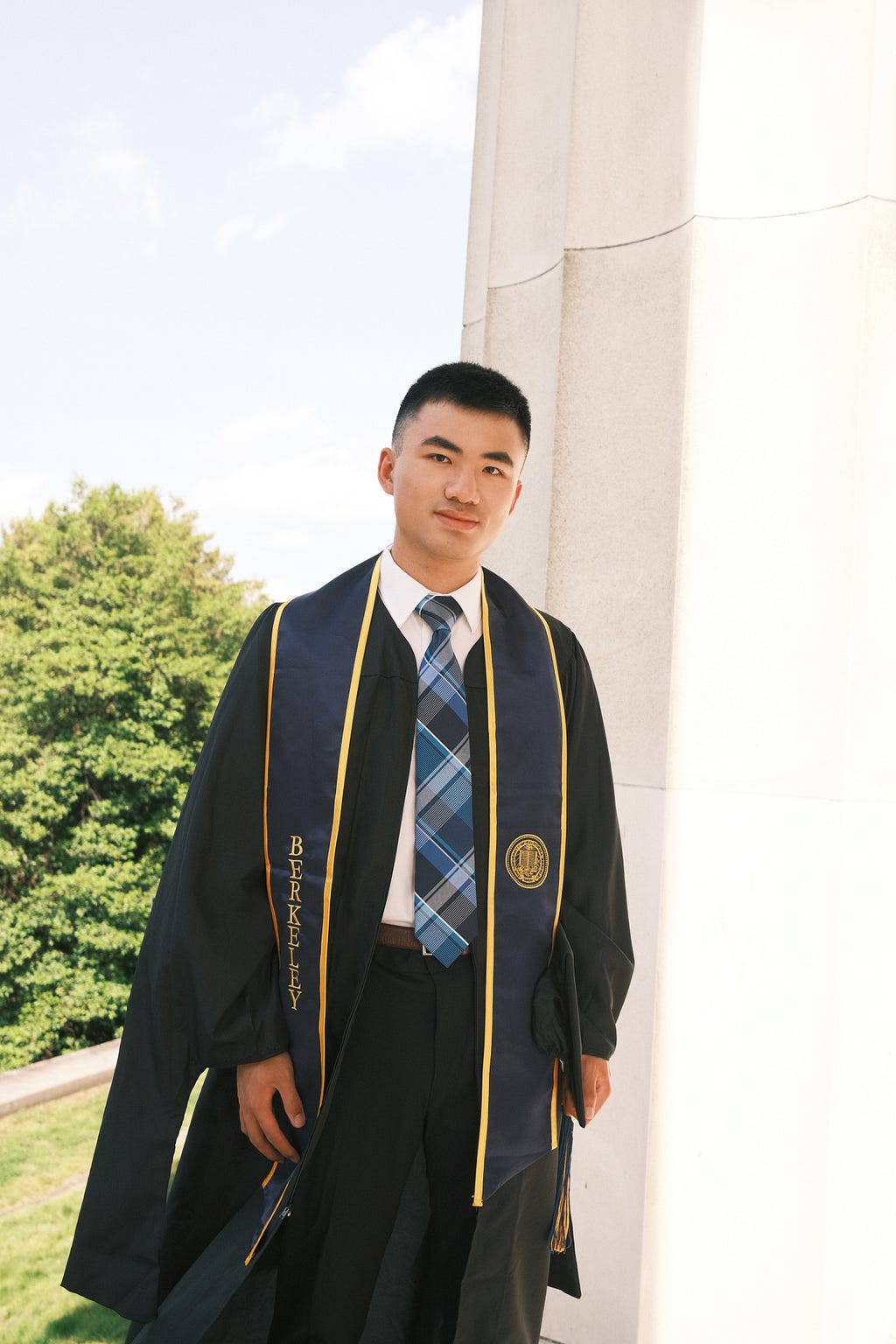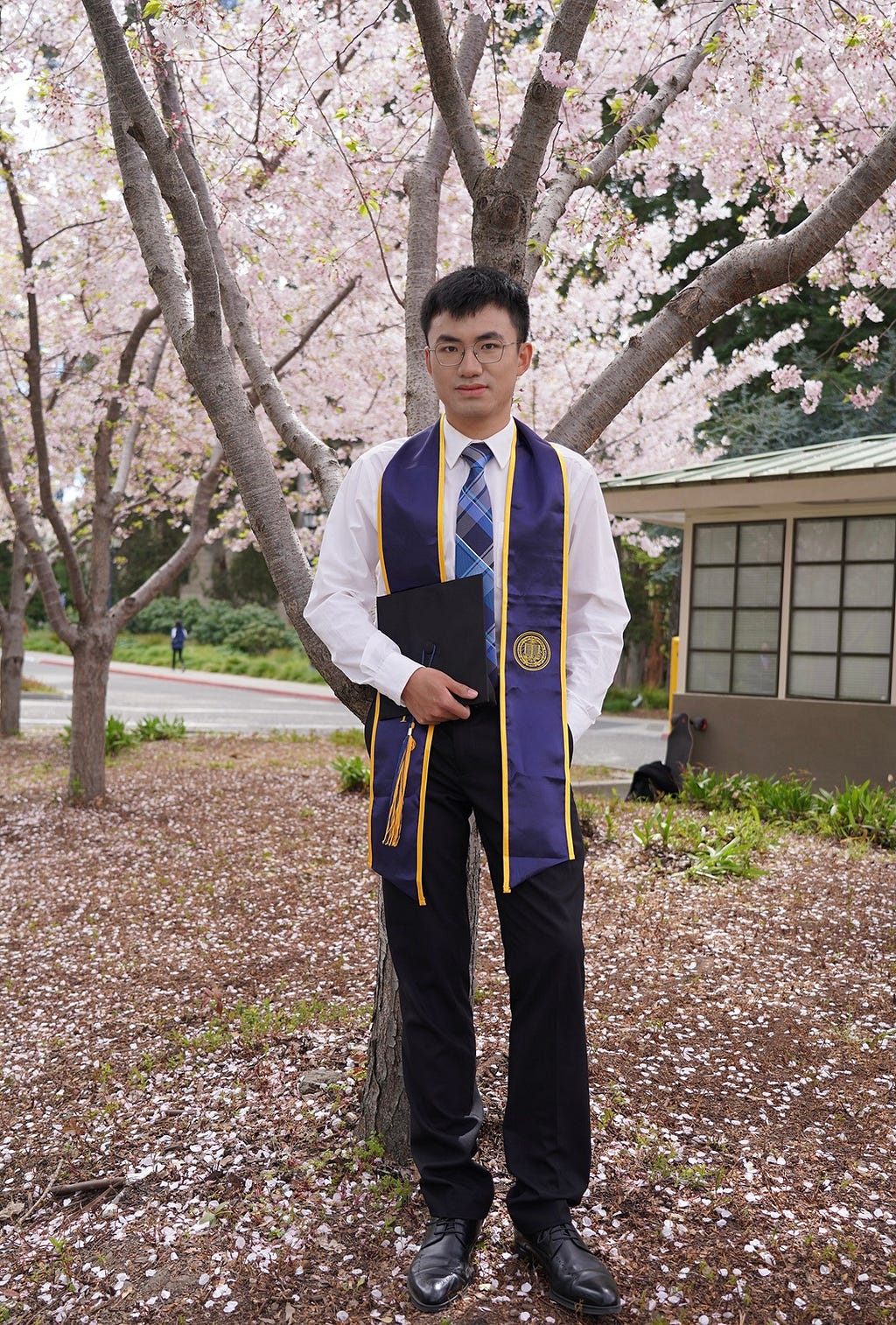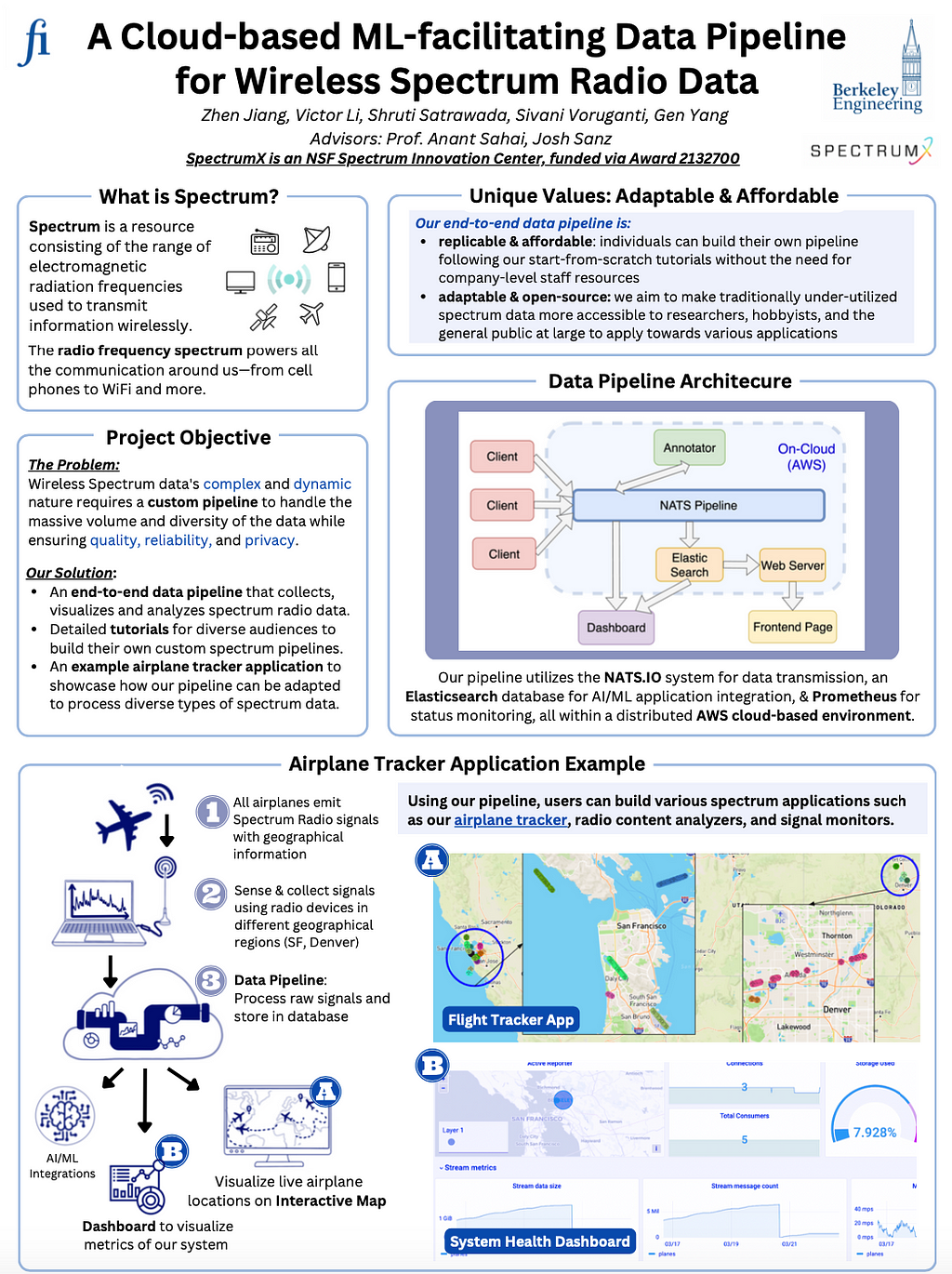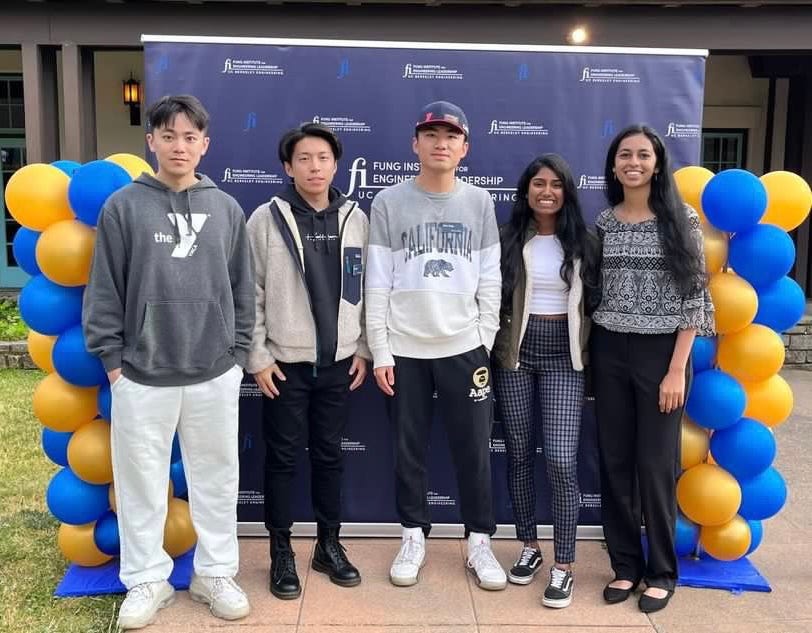On enabling user autonomy, expanding beyond the coursework, and striving for continual improvement
With two degrees in hand, Zhen Jiang — also known as Victor — is ready to enter the working world. Originally from Shanghai, China, Zhen earned a bachelor’s degree in computer science from Georgia Tech. In search of more advanced coursework, Zhen enrolled in UC Berkeley’s Master of Engineering (MEng) program, from which he earned his master’s degree this month. Interested primarily in front-end full-stack web development, Zhen pursued internships at Meta, ADP, and Biodock alongside his academic career. It was in those roles that he discovered a deep passion for creating innovative features that make a tangible impact on users. Until he is able to replicate that feeling at Tesla in July, Zhen is spending his remaining post-grad days learning to play the piano. This is his story.
What initially interested you about computer science?
I have a profound interest in computer science because it empowers me to accomplish meaningful endeavors, such as making a positive impact on society. At Georgia Tech, for example, I was part of a team that developed GT Scheduler, which has now become the #1 app for GT students to efficiently schedule their courses for upcoming semesters. During my last summer internship at Meta, I had the opportunity to create multiple keyboard shortcuts in the Facebook web app. For instance, I implemented shortcuts like pressing ‘option + left’ and ‘option + right’ to toggle between pinned groups. These shortcuts have significantly improved the lives of many of Facebook web users, making their navigation much more convenient.These experiences have solidified my enjoyment as a software developer, as I sincerely believe that my computer science skills enable me to create a tangible impact.
What led you to apply and join the Berkeley MEng program?

Can you tell us a bit about your capstone project, including why you chose it and what you hope to accomplish?
Our project, “A modern scalable AI/ML-facilitating data pipeline for spectrum,” is about wireless spectrum. Spectrum is a resource consisting of the range of electromagnetic radiation frequencies used to transmit information wirelessly. It powers all the communication around us — from cell phones to WiFi and more. The problem is that wireless spectrum data’s complex and dynamic nature requires a custom pipeline to handle the massive volume and diversity of the data while ensuring quality, reliability, and privacy. Our solution is an end-to-end data pipeline that collects, visualizes, and analyzes spectrum radio data. We then wanted to produce detailed tutorials for diverse audiences to build their own custom spectrum pipelines — an example being this airplane tracker application — to showcase how our pipeline can be adapted to process diverse types of spectrum data.
These experiences have undoubtedly contributed to my growth as a software engineer, reaffirming my initial motivation for choosing this project.

What are some of your non-academic hobbies/passions, and how, if at all, have they inspired your professional goals?
Some of my non-academic hobbies include playing tennis, traveling, and cooking. I began playing tennis in high school, continued on the varsity team, and have since enjoyed playing recreationally in college, which nurtures my competitive spirit.What kind of impact do you want to have on the world?
It’s still early in my career, so I don’t have a clear vision of the specific impact I want to make on the world just yet. Personally, my primary focus is to give my best effort in my upcoming job starting in July. Each day, my measure of success lies in the progress I make compared to the previous day, whether it be in professional or personal aspects of my life. Continual improvement is what I strive for, and I believe that by consistently growing and learning, I can make a meaningful impact in due course.
Fun fact:
I’m a huge Pokemon fan, and have played all Pokemon series! Connect with Zhen Jiang. Edited by Veronica Roseborough.Zhen Jiang, MEng ’23 (EECS): “By consistently growing and learning, I can make a meaningful impact.” was originally published in Berkeley Master of Engineering on Medium, where people are continuing the conversation by highlighting and responding to this story.

